
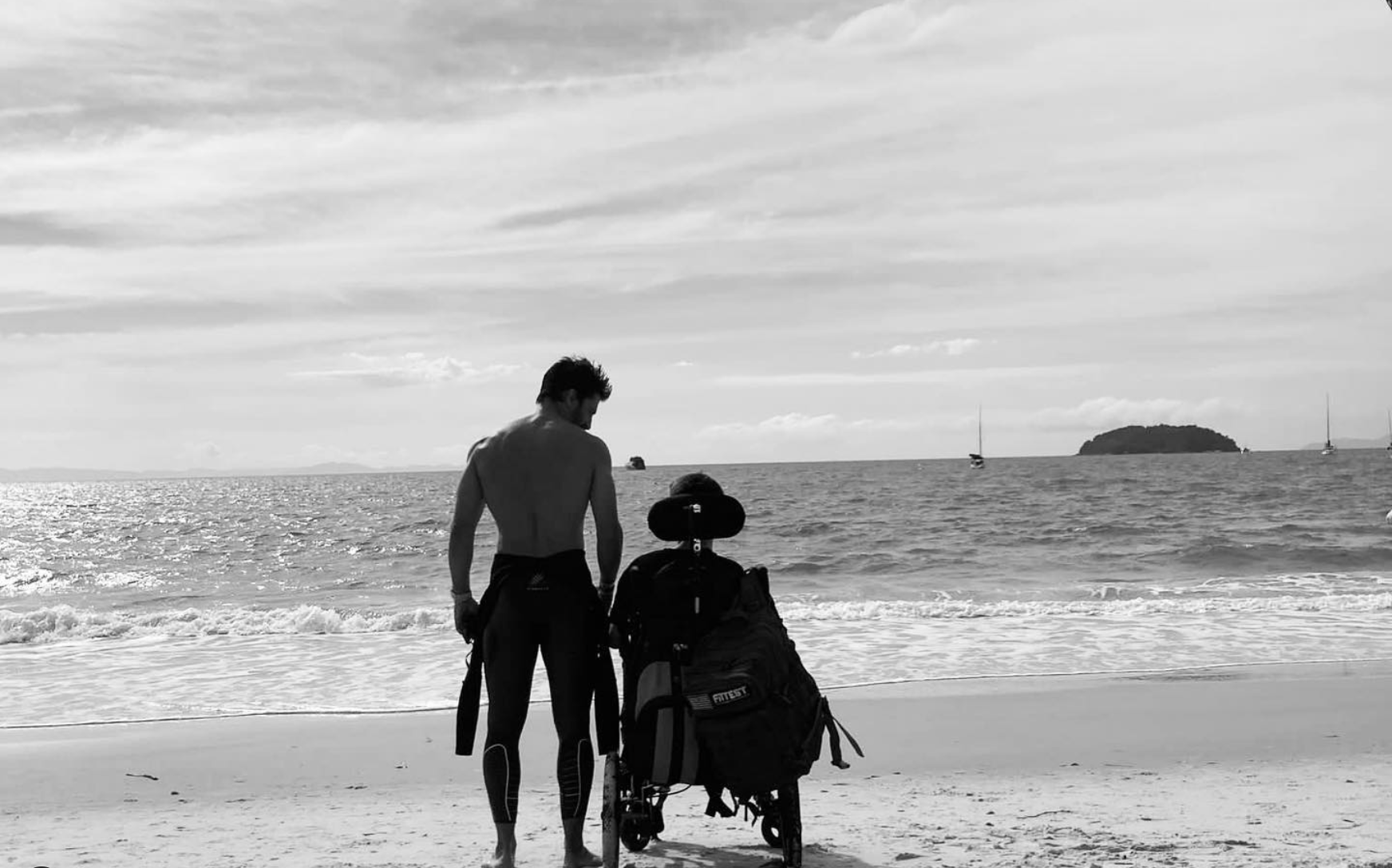
(Pedro & Miguel Pinto, "The Iron Brothers")
ONE STORY
We're obsessed with the self-made myth.
The lone genius. The bootstrap entrepreneur. The individual who "pulled themselves up by their own bootstraps."
It's load of crock. And deep down, we all know it.
Here's what we don't talk about: Every meaningful achievement in history has been a team sport. Even when it looks like a solo act.
An Impossible Dream
Consider Pedro Ferreira Pinto.
Pedro had what most would call an impossible dream: completing an IRONMAN triathlon. You know the drill—2.4 miles swimming, 112 miles biking, 26.2 miles running. In one day. Without stopping.
Here's the thing: Pedro has cerebral palsy. Walking across a room takes tremendous effort. Speaking clearly requires focus. Holding a fork is work.
Completing an IRONMAN for Pedro wasn’t just hard, it truly was impossible.
But Pedro didn't let that stop him. More importantly, he didn't pretend he could do it alone.
Instead, he did something brilliant: He made his dream someone else's mission.
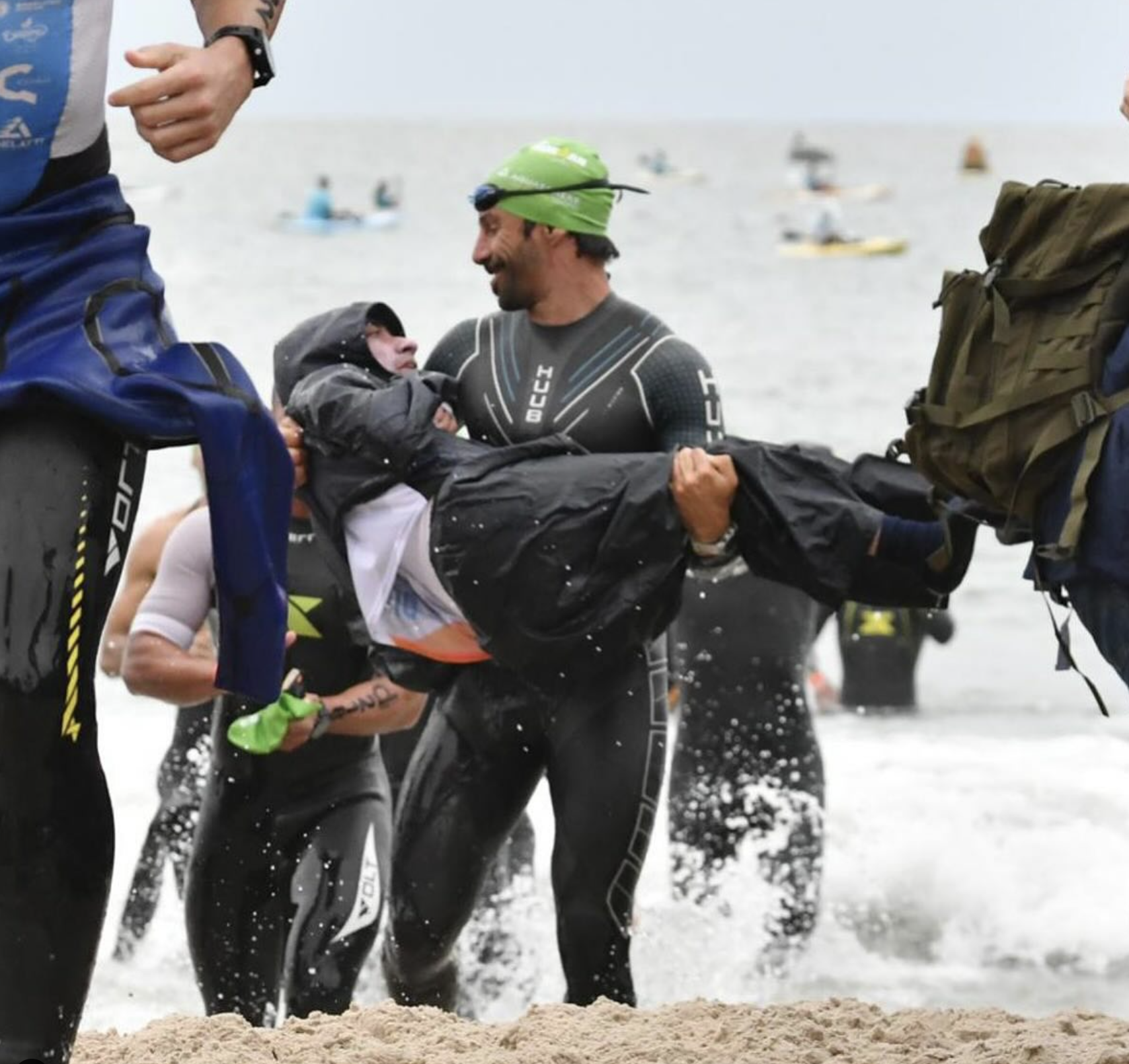
The Iron Brothers
Enter Miguel, Pedro's brother. A lawyer by day, triathlete by weekend. When Pedro shared his dream, Miguel didn't offer pity or platitudes. He offered his body, his training, his life.
"Pedro was there when I finished my first Ironman," Miguel recalls. "After seeing his face at that finish line, I couldn't say no anymore."
What happened next rewrites everything we think we know about limitation and possibility.
The Iron Brothers didn't just train. They engineered solutions.
Miguel pulled Pedro 2.4 miles through open water, tethered to a canoe. He pedaled 112 miles on a custom tandem bike. He pushed Pedro 26.2 miles in a racing wheelchair.
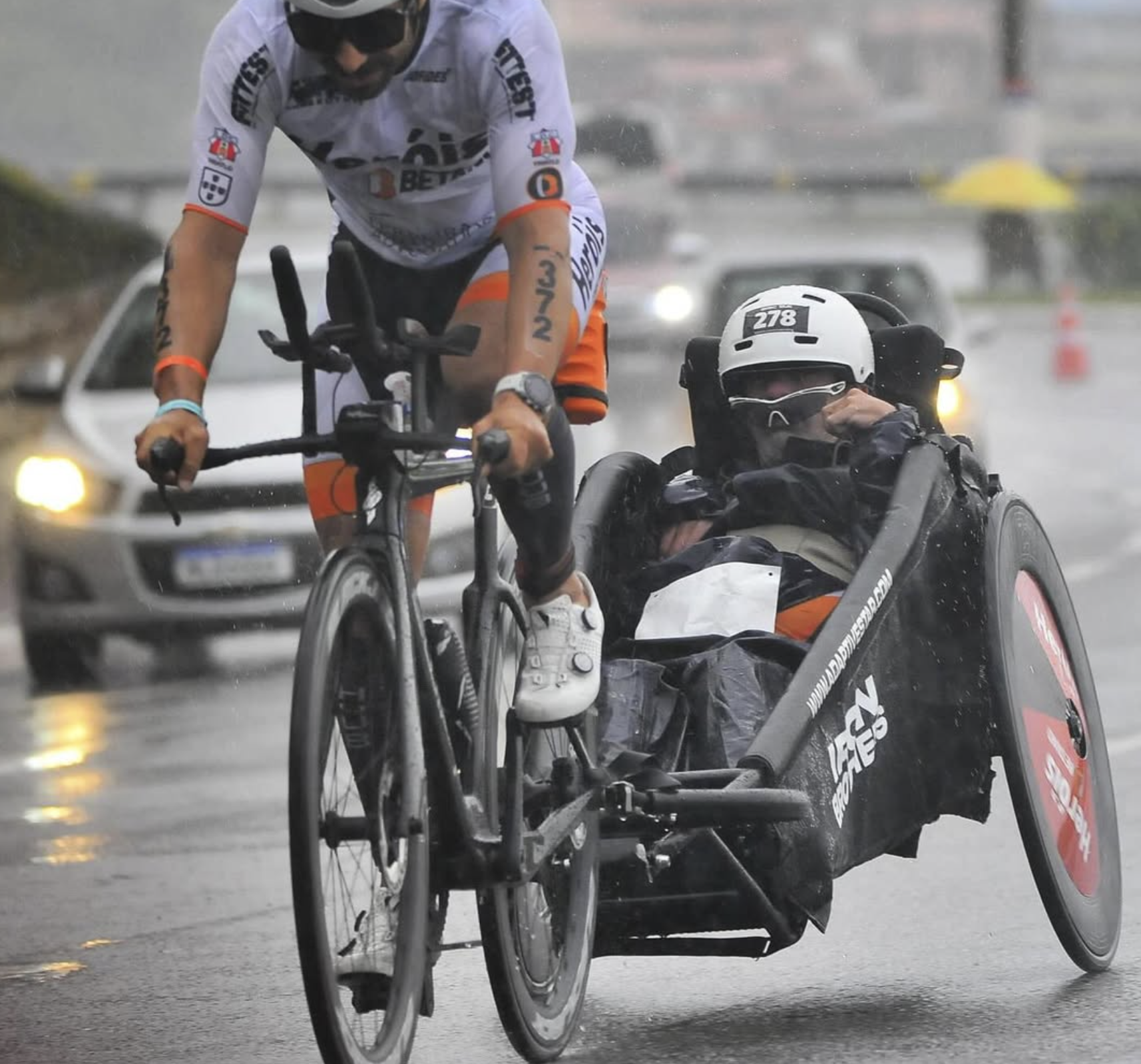
When they crossed that finish line in Brazil, they shattered two myths simultaneously:
-
That dreams are individual pursuits
-
That limitations are permanent
What The Productivity Gurus Don't Tell You
And here's where it gets really interesting...
It turns out, your brain on teamwork is not your brain in isolation.
When Miguel carried Pedro's dream, something profound happened in his neural wiring:
The ego network powered down. You know that voice that whispers "you're not good enough" or "this is too hard"? It went quiet. When you're carrying someone else's dream, self-doubt becomes irrelevant.
The motivation centers lit up. Dopamine flooded his system—not from external rewards, but from internal purpose. This wasn't about Miguel anymore.
He became more courageous. Oxytocin—the bonding hormone—surged through his bloodstream. Trust replaced anxiety. Connection conquered criticism.
Performance became secondary to purpose. The brain's empathy centers activated, anchoring every action in something bigger than personal achievement.
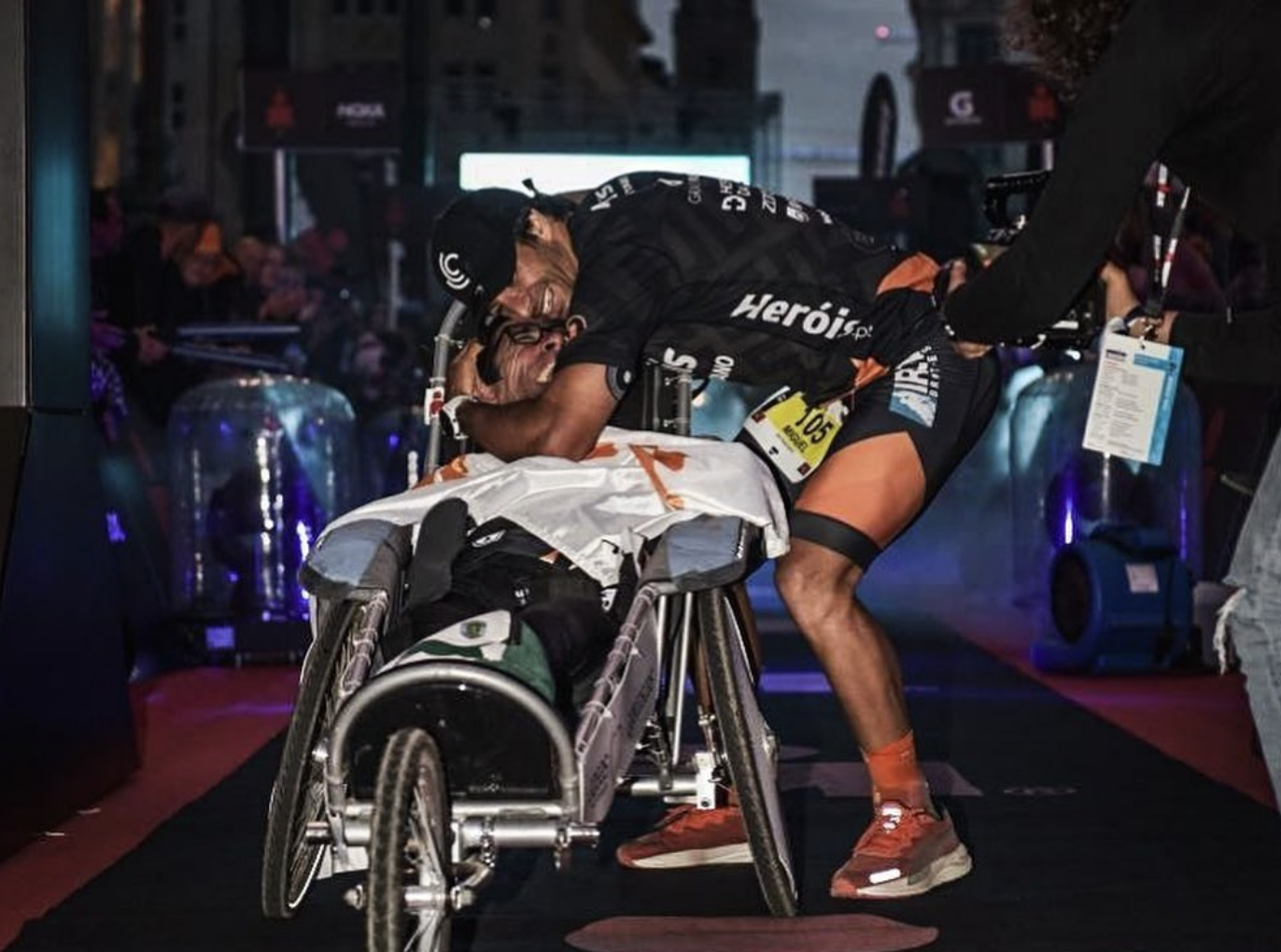
This isn't feel-good psychology. This is measurable neuroscience.
TWO QUOTES
“Courage isn't the absence of fear; it's the absence of self.”
— Erwin McManus
“None of us are as smart as all of us.”
–– Ken Blanchard
THREE TAKEAWAYS
1. Big dreams require shared belief.
No one gets to the finish line alone—not really. Pedro’s dream needed Miguel’s commitment, and Miguel’s strength was amplified by Pedro’s purpose. Every extraordinary goal depends on someone else who’s willing to believe alongside you.
2. Asking for help isn't weakness—it's wisdom.
Pedro knew he couldn’t do this alone, and he didn’t pretend otherwise. Naming your limits and inviting someone in isn’t giving up—it’s how real dreams begin to move forward.
3. Interdependence is the ultimate competitive advantage.
Not just because two people can accomplish more than one (though that's true). But because when you carry someone else's dream, you access parts of your brain that self-interest can never unlock.
MOXIE REFLECTIONS
-
What dream in your life is too heavy to carry alone?
-
Who has believed in you when you couldn’t believe in yourself?
-
Whose dream might need your strength right now?
TOOLS FOR GROWTH
Pattern Recognition: Self-Serving Bias
What it is: The tendency to attribute our successes to our own skill or effort—and blame failures on outside forces. It’s how we protect our ego and preserve our self-image, often without realizing it.
Why it matters: This bias makes it hard to play a supporting role. It keeps us chasing credit, protecting status, and avoiding anything that might make us look small. But courage like Miguel’s requires the opposite:
Laying down the need to be the hero. Letting someone else’s dream take center stage—and being proud to carry it anyway.
Mental Skill Of The Week: Empathic Commitment
What it is: The ability to deeply understand another person’s dream or struggle—and commit to it as if it were your own. Not just feeling for someone, but choosing to walk with them. It’s empathy that moves into action.
Why it matters: Empathic commitment is what transforms support into sacrifice. It’s the difference between cheering from the sidelines and pushing the wheelchair the full 26.2 miles. When you develop this skill, your purpose expands beyond personal ambition—and your strength becomes a vehicle for someone else’s breakthrough.
How to build it:
-
Listen for what matters most to someone else. What’s their finish line?
-
Make space for their dream without comparing it to yours.
-
Ask: “What does love look like in action here?” And do that—especially when it’s inconvenient.
ONE MORE THING
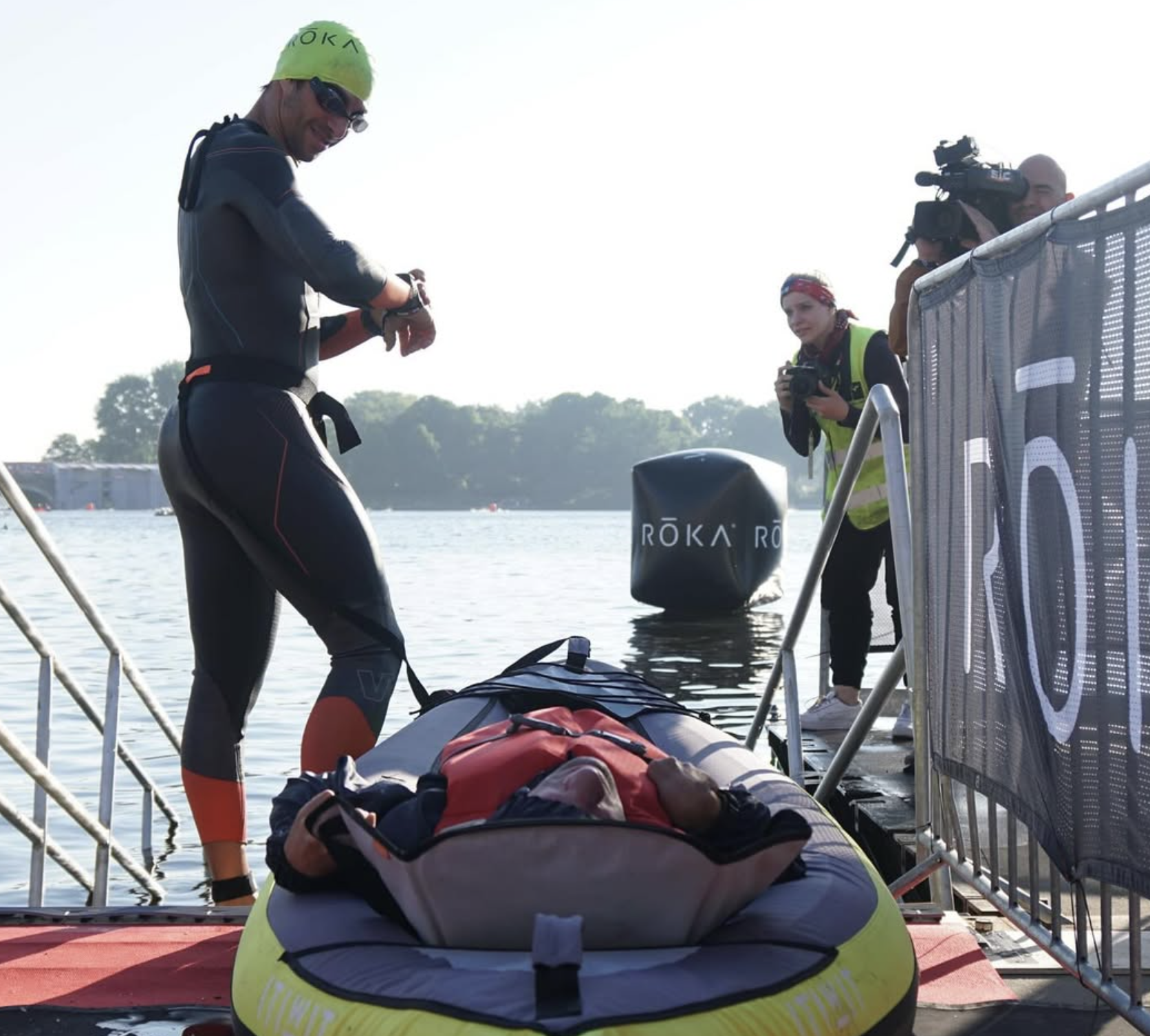
We celebrate independence like it’s the goal. But the truth is—our boldest, most meaningful dreams are rarely solo pursuits.
Stop trying to do it all alone. Stop pretending that your success is solely your own. Ask for help. Find someone whose dream you can carry. Make a collective mission your aim.
Watch what happens to your fear, your focus, your capability.
Like this? Share it. Debate it. Apply it. Just don’t sit on it.
Want more Moxie? Subscribe here.
Also, read past Moxie Newsletter editions.